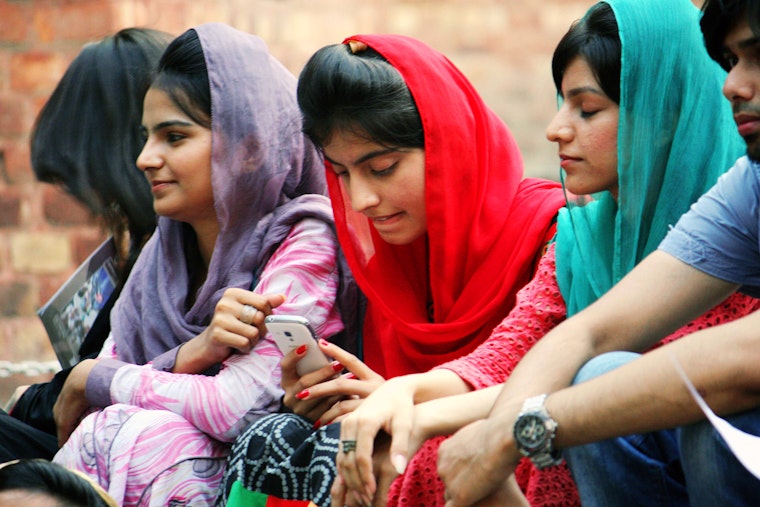How Young Pakistanis Are Sharing Their World on Bolo Jawan
By Jonathan Birchall & Areebah Shahid

Want to know about changing trends in Pakistani weddings? Interested in reading an appreciation of the talents of rising video blogging star Irfan Junejo? Or perhaps reading an open letter to the citizens of Pakistan and India about rising tensions in their relationship?
Welcome to Bolo Jawan—which means “Youth Speaks” in Urdu—a unique website that seeks to give young Pakistanis the opportunity to write about life from their point of view, something frequently missing from the country’s established mainstream media.
The website was set up by Pakistan Youth Change Advocates, which set out to create a forum for citizen journalism in Pakistan’s increasingly fragmented media environment, one that gives space to the voices of the young.
The site was launched in October last year, in parallel with a series of workshops and seminars organized by Pakistan Youth Change Advocates for students across Pakistan. Over 800 young people took part in the training sessions, which focused on the importance of accuracy and fact checking in a world where social media can spread hate speech and false stories with sometimes terrifying speed.
Bolo Jawan was born into a media world that has been changed drastically by social media. The media landscape in Pakistan has also become increasingly fragmented since 2002, when there was only one state-run television channel in Pakistan.
The importance of social media in this context can’t be overstated. Research conducted by Pakistan Youth Change Advocates in 2015 found that with rapid internet penetration and the introduction of smart phones, young Pakistanis—who comprise the vast majority of social media users—largely rely on their phones as the primary tool [PDF] by which they exchange information, coordinate social movements, mobilize, educate, and even fundraise.
The overwhelming majority of university-educated young people in Pakistan already engage in citizen journalism, simply by reporting what they see in their daily lives on popular social networks such as Facebook, YouTube, and Twitter. Still, if they are to become the responsible citizen journalists of tomorrow, there is an urgent need to equip these young people with the necessary skills to evaluate the logic of a claim or the fairness of an argument.
Bolo Jawan and the related training programs aim to fill that void. Since the site went live in October 2016, it has featured over 400 posts (text and video) from the participating students and other members of civil society. The site is gradually building an audience; to date, it has reached over 39,000 page views and nearly 14,000 active users.
Rather like Buzzfeed, it seeks to mix together both highly popular (“Three Eateries Creating a Lot of Buzz in Islamabad”) and more serious political pieces (“The Threat of Extremism in Our Universities is Real and This Is What We Need to Do to Curb It”).
Ultimately, the content reflects the diverse interests of Bolo Jawan’s citizen journalists. It’s a voice that must be heard.
Pakistan Youth Change Advocates is a grantee of the Open Society Foundations.
Jonathan Birchall is senior advisor for communications at the Open Society Foundations.
Areebah Shahid is head of programs at Pakistan Youth Change Advocates.